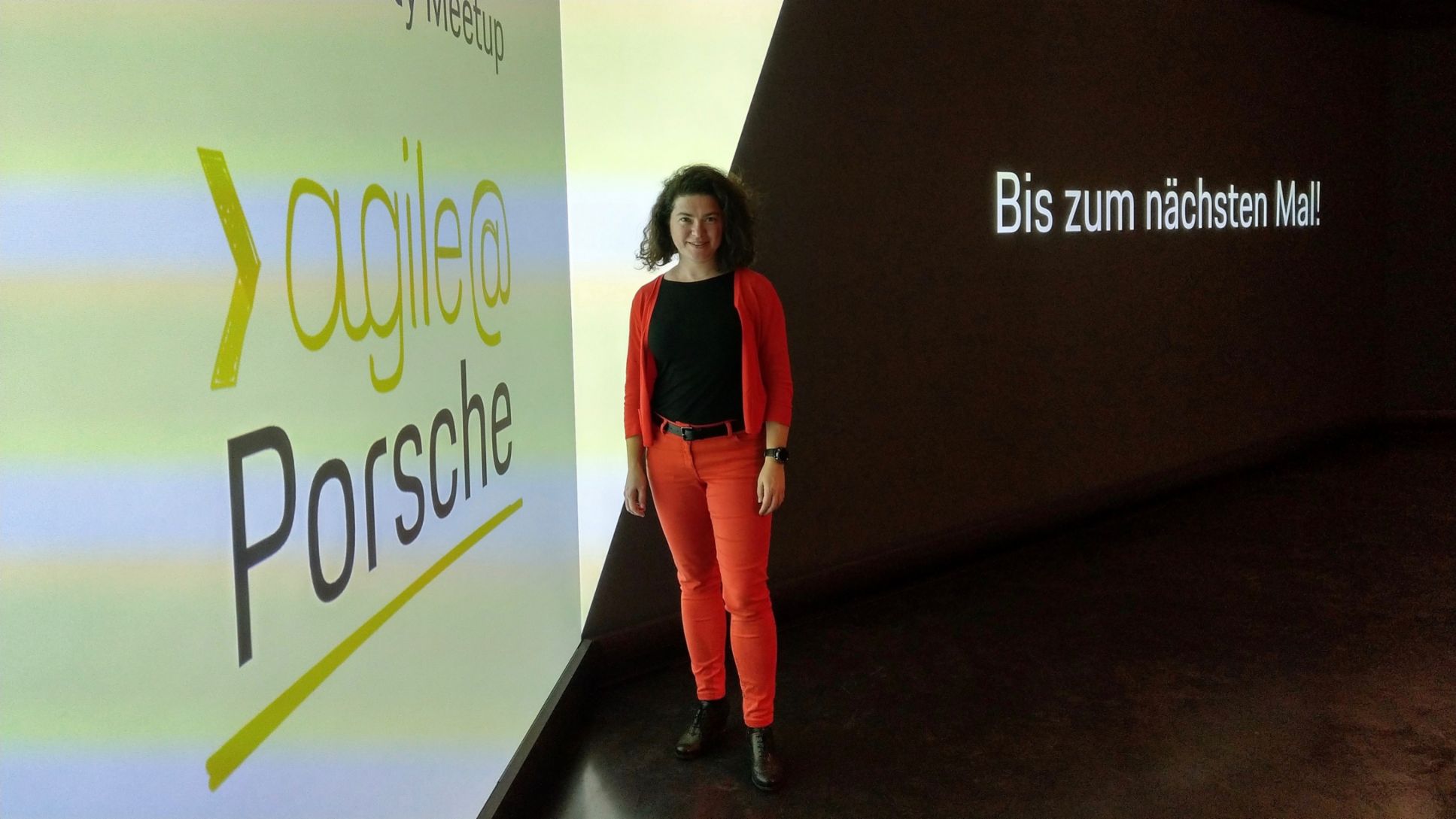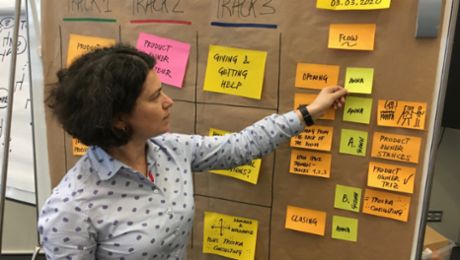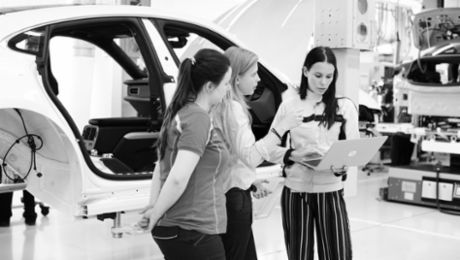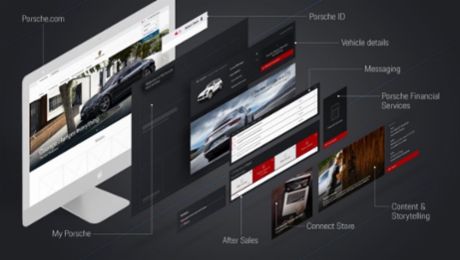Respect, focus, commitment, courage and openness: the values of agile work have always been part of Porsche. At Porsche, tradition and innovation go hand in hand, and this is particularly true for the way we work.
But in a world that is changing more rapidly than ever before, this is not so easy. To keep pace with intelligent technologies, innovations and customer requirements, speed and flexibility are required. The outbreak of the coronavirus and the rapid spread of the pandemic underscore this and make it clear that agility is one of the most important characteristics of a company in order to manage the crisis in the best possible way — as my colleague, Uwe Reuter recently explained here. Agility is not just en vogue, but a key success factor for digital transformation.
We have to ask ourselves: How do we increase the speed of our processes? How do we make faster decisions and can, therefore, react better to changes — especially in times of crisis? And precisely then, how do we manage to remain true to our values and the tradition of our company?
Agile Coaches help to organize collaboration
This is exactly the job of agile coaches like me. For more than three years I have been an Agile Coach for the Finance and IT department at Porsche and part of the Agile@Porsche set-up team. I have already written about how my life changed when I joined Porsche. Now I would like to tell you how we translate the values I mentioned at the beginning into a networked, digitalized world and jointly shape change at Porsche every day.
Together with all agile coaches and scrum masters, we help our organization and all employees to find a new, agile framework for their teamwork — in theory and practice, with rules and values.
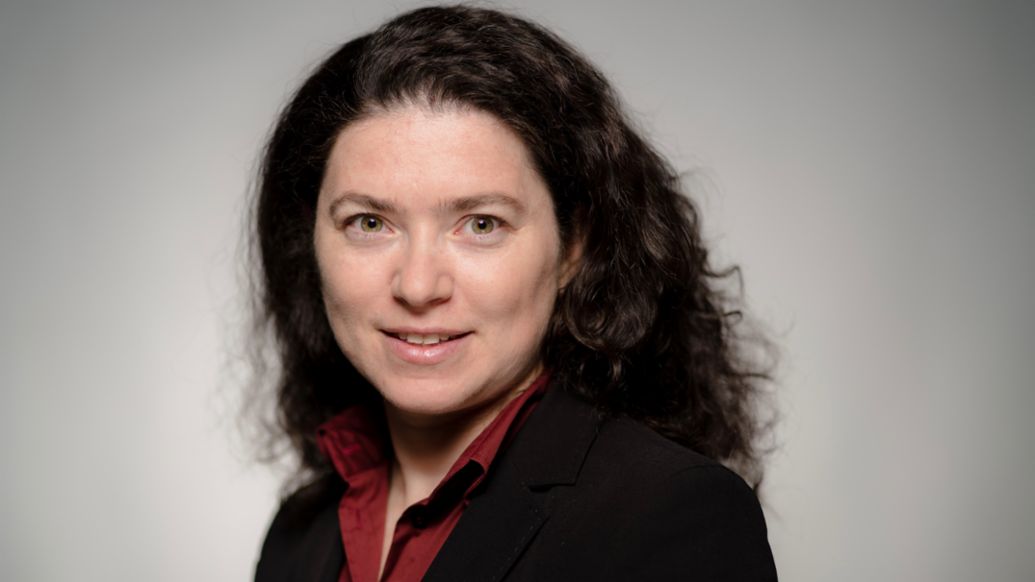
We advise teams on which agile approach is suitable for which needs (e.g. according to the Stacey Matrix), how big or small sprints can be (in the best case according to the need for responsiveness and availability), how to design a backlog (depending on the importance of the tasks), how to prioritize the backlog (depending on dependencies and responsibilities), what to consider in stakeholder management, who to invite for review, or what other communication channels to consider or even completely re-create.
What tasks and expectations does an implementation team have of the product owner and vice versa? When do we speak of “Definition of Done”, when of “Definition of Ready” and what are they good for? What are the acceptance criteria and what are their benefits?
The role of the neutral enabler
Agile coaches are impartial. We coach, advise, moderate, observe, and listen. Whether it is a team, a project, a product or a strategy — we bring in the outside perspective and accompany the development process. As an Agile Coach, this is very important: to accompany the team and give them the freedom to make their own decisions.
Our main concern is to create an agile mindset and to develop the working methods accordingly. Whenever there is a problem, we help the product owners, for example, my colleague Shari in the collaboration department, and those who implement the respective product. There are reviews on the progress of the project and retrospectives on collaboration, it’s all about team building and also critical questioning: “Is what you have in mind the most important thing for the next iteration? When do you know that the task is done? What irritates the team and what makes the team strong?” Personally, I really enjoy the energy in the room at such meetings when we work on developing ourselves and the entire organization together
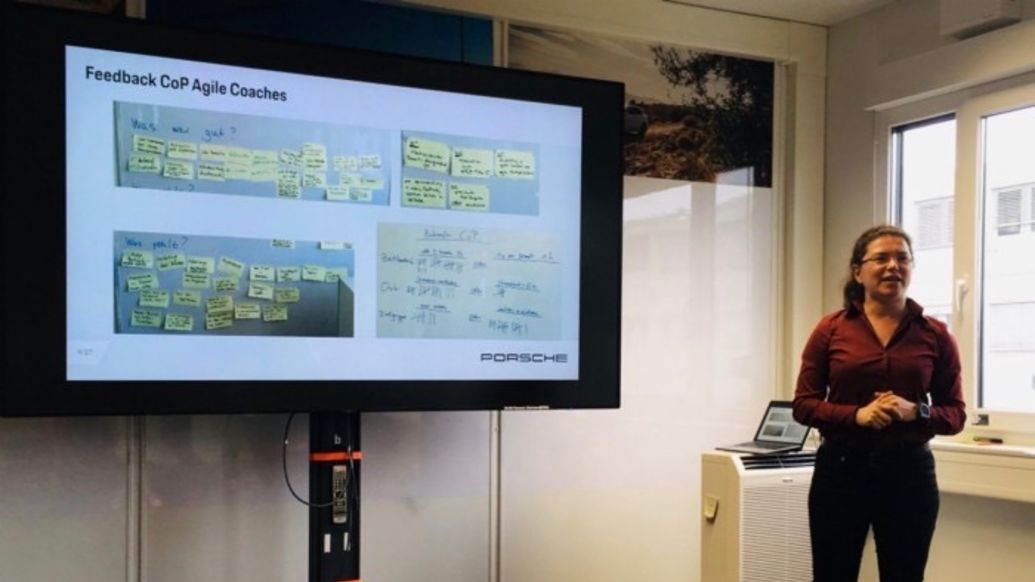
My experiences have shown that change is only sustainable if those involved identify with the change and perceive themselves as co-creators of the transformation. As a simple example, which I am sure everyone has experienced at least once: If in a retrospective, the team members realize that they need to interact with each other more often in a goal-oriented and focused way in order to achieve a better quality of the result, then it has a different weight than when an agile coach or a manager says that the team members need to coordinate or synchronize more often in the future in order to deliver better quality.
The journey is the destination
As an Agile Coach I am not responsible for the result, but for the path to the goal. The agile values are very important to me personally because I firmly believe that good teamwork leads to the best results. For me, a sense of achievement is when colleagues think about the purpose, importance, feasibility, and acceptance criteria of a task when there is a discussion at eye level about priorities and realistic planning. When it comes to the question of success, for me personally the answer is: If I have developed myself or the others, then together we have taken another step in the agile transformation.
Agile@Porsche and company-wide knowledge transfer
At Porsche, our tasks and fields of activity are as varied as the crew itself. In order to provide the entire organization with a central point of contact for its needs and requirements, questions, concerns, and feedback on the topic of “agile”, we have created the set-up team Agile@Porsche.
I am very proud to be part of this seven-member team, in which we organize quarterly community events to promote knowledge transfer and exchange of experiences throughout the organization. In addition to external impulses, these events also offer our colleagues a stage for the experiences, successes, and pitfalls of their agile journey.
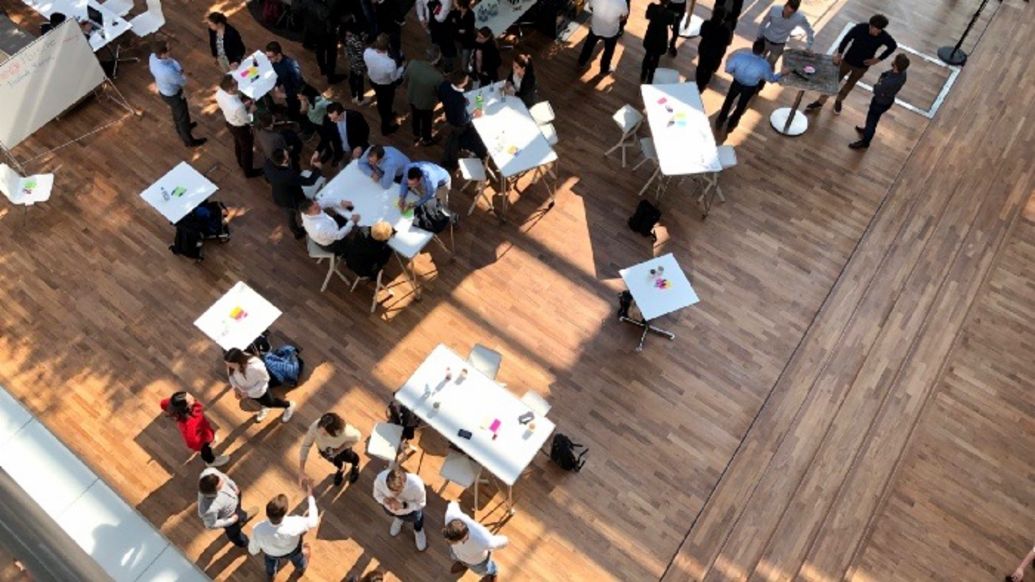
All Porsche employees who are interested in the topic are welcome to attend. We held the last community meeting virtually so that colleagues from other locations could also take part, who might otherwise not have been able to attend due to travel time — which was a great success for us!
I am convinced that if we — the entire organization, all departments, IT, service providers, and suppliers — pursue a common goal and base our cooperation on common values, the result of our work will always be better. And I am happy that as an Agile Coach and part of the Agile@Porsche set-up team I am able to drive innovation and agility forward step by step every day. It never gets boring!
As we always say: Wherever dream cars are built, dream jobs are never too far away. If you’d like to experience the fascination of Porsche as well, have a look at our job offers on jobs.porsche.com.
Info
Text published by Anna Roizman, Agile Coach at Porsche AG.
